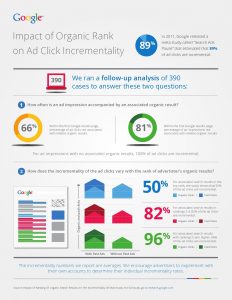Local Search Marketing is an invaluable tool for local businesses such as dry cleaners, coffee shops and plumbers that want to reach potential customers who live nearby.
A successful local SEO strategy guarantees your products or services are found by those searching for them at precisely the right time. That means more loyal customers will become repeat buyers of yours.
Local Business Structured Data
Local business schema is a type of structured data markup code that can be added to your website in order for search engines to better identify what type of organization you are and the products or services you offer.
Local business schema can improve your site’s SERP rankings, boost click-through rates (CTR), and boost organic traffic. It may also lead to more conversions and generate new business.
Add local business schema markup to your website using HTML code or with a managed user interface, schema app, or plugin. Alternatively, you can crawl and test your local business schema markup using Google’s Search Console service.
Google My Business
Google My Business is a free tool that helps businesses gain visibility within local search results. With it, you can manage your profile information, craft an accurate description, and provide accurate details about your business.
Success requires creating a Google My Business page (GMB) that adheres to Google’s guidelines and contains up-to-date information.
Additionally, you can add reviews from satisfied customers to boost your brand’s credibility, foster trust, and ultimately boost sales.
Google My Business is an invaluable tool for local search marketing, placing you in front of potential customers when they’re searching for your service. Plus, it gives you access to the coveted Google Local 3-Pack which appears at the top of organic search results.
Google Maps
Google Maps is an invaluable tool that can help your business be found by local customers and build brand recognition. Furthermore, it has the potential to boost conversions and revenue.
To take advantage of this offer, ensure to claim your business’ Google My Business listing. It is free and takes only a few hours of effort.
Once your profile is up and running, the next step is to optimize it for maximum benefit. Doing this gives you an edge over competitors who don’t have an optimized GMB profile.
Another key strategy is to monitor reviews and promptly respond. Doing this will demonstrate to potential customers that you are dependable. Furthermore, it helps boost your GMB profile rank higher in Google Local 3-Pack rankings.
Local Listings
Local listings are an integral component of a successful local search marketing strategy. They enable customers to locate businesses nearby that provide the products or services they require.
They also contribute to building high-authority backlinks that Google values. These signals demonstrate your business is legitimate and established in a certain location, which could help boost your website’s authority and visibility on search results pages.
One of the most essential local SEO tips is ensuring your name, address and phone number (NAP) are consistent across websites. This is essential for both users and algorithms alike since an incorrect NAP on other sites could negatively affect your search engine rankings.
Local Content
Local content refers to any digital material you post online that helps people and search engines understand your business, product, or service in simple terms. This could range from website content and reviews to images, videos, and social media posts.
As the global economy and natural resources sector continue to evolve, resource-rich countries are increasingly including requirements for local content into their legal framework. These policies aim to promote job creation, strengthen domestic private sectors, facilitate technology transfer and develop a competitive local workforce.
CCSI created profiles to analyze and compare how policies are applied across countries, based on legislation, regulations, contracts and non-binding frameworks related to local content issues in mining and petroleum sectors. Where available, links were provided to source documents for further review.




